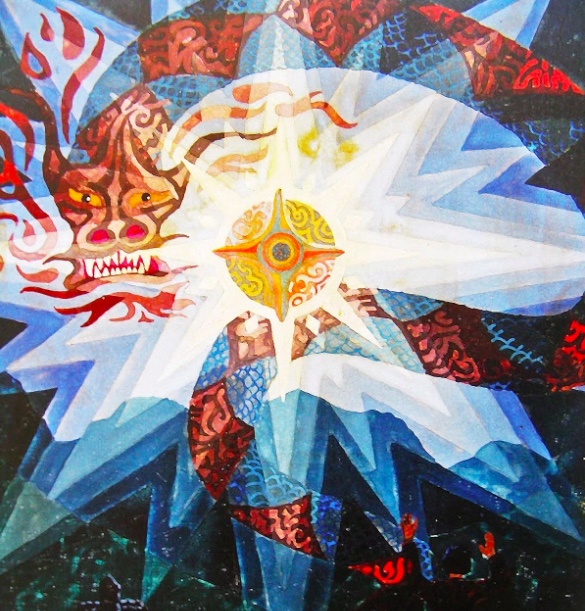
Notes on spiritual and mental health
I’m attempting to catalog some of my deeper thinking on topics that seem to come up in themes when I am speaking with visitors to the shop, conversing with the healing arts practitioners, or listening to friends share. Lately, I am witnessing a theme around mental and spiritual health.
Before I go any deeper into this topic, I want to be clear that I am not a psychologist. I do not have a degree, or any coursework really, in behavioral science, psychology, or social work. So take my words for what they are, experiential reportage from the frontlines of my life as an adult child of an alcoholic, magical practitioner, mother, periodic anxiety-sufferer, and lover of therapy!
Mental and emotional health is such passionate topic for me. Over the years, my own family, like most families, has had struggles. We have been able to meet those struggles with an arsenal of love and understanding, thanks in no small part to the support of therapists. Throughout my life, a pathway of “getting some help” has been modeled for me, without stigma, as a way to smooth through transitions and changes, examine negative thought patterns, and just feel better.
I am open about being in therapy because I want to normalize it. I don’t accept that getting help is shameful, or a sign of weakness, because I have directly seen how it can heal families and liberate individuals. I view the willingness of a person to address their psychological health as a sign of integrity, strength, and commitment to healing. Never have I met a person with a perfect family or a stressless life. An admirable person is someone who is wants to examine limiting mindsets and patterns. This process can be significantly easier and safer with the help of a therapist.

I have had a number of therapists with different approaches and areas of expertise help me work on myself. Over the years, I’ve gotten better at involving a therapist early on in my process, and knowing which ones work and don’t work for me. Not all therapists are alike. Individuals seeking therapy should feel empowered to question a potential therapist on their background, areas of focused work, and philosophy, to find the right support. You should feel supported and able to be honest with your therapist.
Therapy and spiritual/magical hygiene go hand in hand. It’s especially important for spiritual leaders, healers, teachers and magically operant people to take care of their mental and emotional health as part of their spiritual practice. You can sage all you want, but if it’s YOU bringing the baggage and destructive thinking into the room, that sage isn’t going to do very much. Particularly if you work in service to others, it’s important to be sure you are taking care of your mental (and physical) health. It can be incredibly confusing and psychologically damaging to the people you are trying to help if you are adopting a “do as I say, not as I do” approach. Practitioners like that have a way of sapping energy from their clients and comrades, or attracting a posse of toxic people around them. They also erode the trust of the public, when we perhaps need holistic healing options and spiritual guidance more than ever. Addressing negative habits of thought and personality flaws is part of the spiritual work we all need to, but it’s especially important for leaders in the community.
A troubling example I have seen often enough is the healer, practitioner or spiritual leader who fails to ground themselves appropriately, who prefers to remain head in the clouds, considering only the highest spiritual concepts, remaining open at all times to visionary impressions. But they may be verbally abusive to their spouse, or suffer from addiction, or express themselves continuously as a victim. They may lose touch, let their finances and home fall into disrepair, and disappoint loved ones while keeping up an appearance of being more evolved. In short, they do not see the need to address their own negative thought and behavior patterns, and they suffuse these influences into their teachings, energy work, or social media account (come on, we all know one!) How well can you teach and channel Divine consciousness if you have not first addressed the ego and your personality flaws?
I am happy to hear more people talking openly about the need to heal ancestral wounds. This is an important conversation. But I find myself wondering why it so often fails to go that necessary step further… We are each responsible for stopping the imbalanced behaviors that we brought from childhood and young adulthood. This is the part of healing the ancestral legacy that we have the most control over, and which has the most benefit to us, personally, and the world. Why not apply effort where it is most effective? This work involves eliminating toxic behaviors, mindsets, and treatment of others that we might not have realized we were perpetuating, and it is much easier to do with a neutral, outside party (a trained therapist). The work involves looking into our shadow, the parts we would prefer not to confront, and really examining and understanding them, then changing our approach. This is part of the Great Work of the alchemists that I have written about previously. And it relates to all of us, not just the magically operant and the philosophical.
I advocate for all people to try therapy for a period of time as part of their pursuit of total health- mind, body, spirit. And for those who work with more esoteric practices, a daily practice of banishing and grounding is also necessary, but sadly de-emphasized in most circles. I hear many excuses about not having enough time, being too busy or forgetful, but these are just… excuses! (It might be useful to examine why you feel resistance to self-care.)
The benefit of a good physical and spiritual protocol is enormous and requires only incremental shifts to get to a good place. I was recently excited to hear that one of the Silicon Valley genius-types interviewed for the book American Cosmic, by Diane Walsh Pasulka, has a very similar daily practice to mine. He came to it intuitively, but the basic daily protocol is:
- sleep 8 hours
- drink plenty of water
- avoid sugar, alcohol, foods that are not whole foods
- meditation
- expose the body directly to sun every day
- prayers/devotions/ritual
- be active
I realize this looks like a hefty list to a person with an already straining schedule, but when broken down, these can be added one or two at a time, until you’ve been able to incorporate them at your desired level. I have personally found that using this model has cleared away much of my brain fog and reactivity to stress and negative emotions when practiced closely and consistently. I will disclose that I am not perfect! I am writing this from a few days of vacation and I have been enjoying late-night Milano cookies. (To be honest, my stomach isn’t very happy.) As with all things, moderation is key. We are here to enjoy our corporal form and the experiences of a physical life!
If any of this post has spoken to you, I want to offer this list of links to podcasts and writings that I have personally found useful. These are specifically oriented toward magical practitioners, but they could easily be applied to anyone. David Shoemaker is a personal acquaintance and psychotherapist. Josephine McCarthy is a highly experienced magical practitioner, and the creator of Quareia, a magical self- study course. What I like about these particular resources is their dual application on the spiritual and practical level.
Psychotherapy and the Magical Path, Living Thelema Podcast with David Shoemaker. Excellent explanation of the value of psychotherapy for spiritual practitioners on a path of attainment. Especially useful guidance on how to find a good therapist if you are following a non-traditional spiritual path. Book recommendations.
Cognitive Therapy for Magicians, Living Thelema Podcast with David Shoemaker Focused on application for magical practitioners, but a very good explanation of how cognitive behavioral therapy can be applied for all.
Magical Healing by Josephine McCarthy This is a free text and I consider it a very good and thorough guide with many great ideas draw from experience. Please do not copy, but enjoy for personal use.
Sources:


2 Comments
Coralie
Thanks I am a mother and very busy! This helped me alot!
Andrea Porrazzo
I enjoyed your post very much and agree wholeheartedly as to how important therapy can be in the quest to a healing journey.